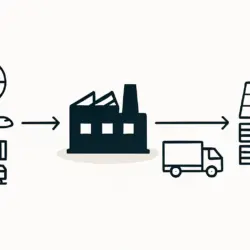Luxembourg’s renewable energy plan drives bold steps in energy efficiency
Luxembourg has announced a comprehensive package of 51 measures to promote renewable energy and enhance energy efficiency, aiming to significantly cut emissions and reduce its reliance on fossil fuels. These wide-ranging initiatives align with the country’s long-term energy and climate goals, as outlined in the National Energy and Climate Plan for 2021-2030.
Scaling up solar and wind power
A key part of Luxembourg’s strategy is to scale up solar energy, with ambitious plans to add 400 MW of installed capacity by 2030. This effort is supported by enhanced financial incentives, including higher feed-in tariffs for small photovoltaic systems and the creation of a solar leasing company to stimulate investment. Luxembourg also plans to develop a solar cadastre by 2025 to map the solar potential of the nation’s buildings, which will facilitate a more targeted deployment of the technology. For more insights into solar energy trends, you can explore Luxembourg Solar News Archives.
Wind energy is also a target for growth, with plans to add 300 MW of installed capacity by 2030. The expansion will involve revising feed-in tariffs and advancing wind energy technology, which will better position Luxembourg to integrate wind power into its energy mix.
Boosting renewable gas and building efficiency
The government is also focusing on renewable gases like biogas, biomethane, and hydrogen, offering various financial support mechanisms to boost their production. These include a new support mechanism for biomethane and adaptations to existing biogas schemes to maintain and expand capacity. Other measures will also enhance the sustainability and efficiency of district heating and cooling networks.
To further promote energy efficiency in buildings, the government plans to increase renovation grants under the “Clever Wunnen” program and introduce a new scheme, “Clever Wunnen 2.0,” to encourage innovative technologies. Companies conducting energy audits will also benefit from increased financial support, a move designed to encourage more energy-conscious operational practices.
Grid upgrades and support systems
Strengthening the grid infrastructure to accommodate this increased capacity is a critical part of Luxembourg’s strategy. Plans include expanding grid capacity and developing new interconnections with neighboring countries to ensure a reliable and efficient energy supply. The government will also promote the use of smart grids and digital technologies to improve overall grid efficiency and reliability.
Luxembourg is also committed to promoting energy storage solutions like hydrogen and batteries, which are vital for balancing supply and demand in an energy system that relies heavily on renewables. New support mechanisms will encourage the production of renewable gases and the integration of storage solutions in buildings and industries. For more information on innovative uses of solar technology in infrastructure, check out Solar Panels on German Highways Revolutionize Energy.
Fostering public and industry engagement
Consumer and industry engagement is crucial for the success of Luxembourg’s energy transition. The government plans to launch educational campaigns to raise awareness about the benefits of renewable energy and energy efficiency. It will also provide incentives for businesses to adopt these technologies, helping ensure widespread participation across all sectors.
By implementing this package of 51 measures, Luxembourg aims to build a more resilient and sustainable energy ecosystem. This comprehensive strategy will significantly increase the share of renewable energy in its energy mix, reduce greenhouse gas emissions, and enhance energy security. These initiatives not only align with the country’s national objectives but also contribute to the broader European Union goal of achieving carbon neutrality by 2050.



